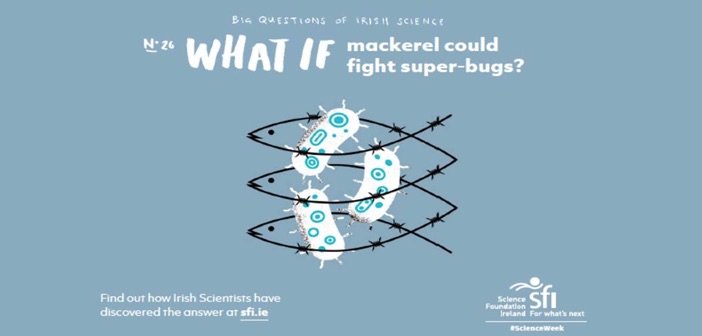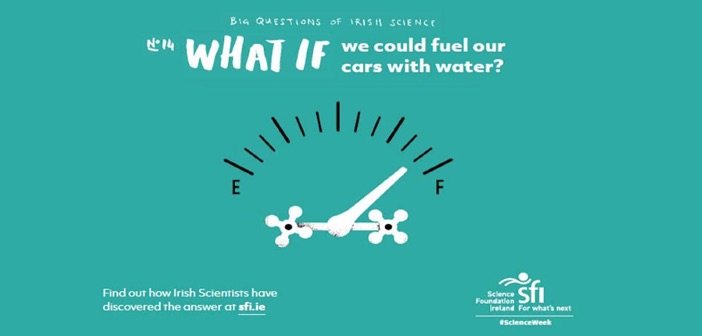Who’s Responsible For Science?
Science Week is just over and I’ve been reflecting over the question of who is responsible for science & scientific research and how we as the public should formulate and voice our opinions on science. The question was first raised by Maja Horst at the History of Science, Technology and Medicine Network Annual Conference hosted in association with Celsius at DCU during Science Week.
Horst is a science communications expert at Copenhagen University and an engaging speaker. She spoke about a recent interactive exhibition she designed to help the public think about issues surrounding science and responsibility. Part of the exhibition, based on surveys and thorough research, presented five possible groups who could potentially be responsible for deciding the direction of scientific research of a country:
- The government
- Scientists themselves
- Industry
- The public
- A collaboration between the above groups
Visitors were presented with different arguments and scenarios and could vote on their preference. The scenarios highlighted the real world challenges those responsible for science faced. For example, Horst asked, if scientists developed a drug treatment that could save millions of lives but a small percentage of the population would suffer from serious side effects, how many people suffering from the side effects is an acceptable margin to save millions – none? hundreds? thousands? tens of thousands? hundreds of thousands? And what would you decide? What if those suffering side effects were children? Do we allow the pharmaceutical industry or the scientists themselves to make the decision that could effect millions or should the government step in? These are all important challenging questions.
Even when the health of the population isn’t in question, science policy makers face tough decisions to make the most of an inadequate amount of financial resources. The aim of Ireland’s Science Week was to draw attention to science and make a fuss to engage the public. There were enjoyable theatre performances and panel discussions for adults and the science of bubbles and fun science activities for children. The possibilities of science can instil wonder and inspire audiences. Science Week no doubt can be fun, but it is also an opportunity to ask the public, the tax payers, to consider responsibility and science and allow them to assess whether it’s heading in the right direction. It is an opportunity for the public, who play little part in science policy in Ireland, to participate and perhaps formulate their own opinions on where science should be leading us.
I had the opportunity to go along to the Science Foundation Ireland (SFI) Science Rising Summit in Croke Park. It was an interesting day to view the government’s primary science funding body at its best, presenting awards to its own through slightly rose-tinted glasses. The audience included those who had been successfully awarded grants but even so, I heard an occasional veiled grumble about the commercial emphasis of it all from attendees. Scientists don’t always like to be told they must produce marketable results and, sometimes, science for the sake of scientific advancement can be downgraded despite its vital importance to the overall mechanisms of science. Sometimes, scientists like to be left alone with their work allowing the evidence and their interests to dictate where the research takes them. I understand this reflex, but perhaps there is a responsibility that comes with public funding to burst their bubble of isolation. Without a doubt Irish science funding is directed towards commercially marketable outputs, but this might also be considered its responsibility to the tax payer. Not unsurprisingly our society has been hyper focused on economics lately. Funding scientific endeavours that are patentable and commercial can allow the SFI to justify to Irish tax payers why money is being spent on science instead of healthcare provision or social housing. It spends money to hopefully make money and grow the Irish economy. International prestige is a happy bonus.
France Córdova, the Director of the National Science Foundation (NSF) of America, was the keynote speaker at the SFI summit. She spoke about 10 big sky ideas that her agency intends to focus on including astrophysics, shaping the human-technology frontier, and harnessing data. The big ideas were decided by scientific leaders. One person privately remarked to me that some of Córdova’s big sky ideas would not be funded in Ireland and to me this all came back to responsibility. Indeed, the SFI current advertisement campaign at Dublin Airport ‘Big Questions of Irish Science’ presents big questions that we have already solved intended to showcase Irish science rather than display any aspirations. Although the posters (seen below) present fascinating research, it is a reminder that Ireland’s idea of ‘big’ and America’s is vastly different. The idealism of choosing one big problem is attractive – history of science shows humanity harbours a fascination for ground-breaking inspirational discoveries – it would be spectacular to see Ireland choose even one problem, let alone ten, and use all of its available resources to solve it. Imagine if we could solve climate change, cure cancer, or build a colony on the moon – Is it defeatist to say we simply don’t have those kinds of funds? Even Córdova admitted that the NSF needed an increase in funding to their multi-billion-dollar budget to tackle all ten ideas.
In Ireland we have Horst’s government model predominantly. Scientists submit their proposals for research but inevitably it is the SFI on behalf of the government that decides who receives funding. Over the past twelve years they have funnelled focus into certain areas growing particular disciplines and encouraging further submissions from them. We also take many of our cues from prominent industries in Ireland like big pharma, and technology and agricultural companies, who are willing to invest in our scientists. It was made clear that the SFI only funded proposals that would compete on a global scale. It very much followed the reasoning that Ireland may not be a particularly rich country or a large country, but if it was going to spend tax payers money, then it would be spent wisely with global impact and economic returns in mind. A seemingly responsible attitude.

The SFI appears to be hedging its bets, choosing several areas to increase our expertise in and this approach is earning results. Other scientists are noticing our research. Professor Mark Ferguson, Director General of the SFI announced that in the world citation index (which counts other scientific papers that refer back to Irish research publications) Ireland is now first in nanotechnology, 2nd in animal & dairy science, 3rd in immunology, material science and agricultural science, 4th in mathematics.
Responsibility contains difficult choices. We are more financially accountable to the taxpayer with our current model, but do we risk missing out on something spectacular by focusing too much on commercial output and paying too much attention to citation indexes? Is there a scientist in Ireland who has the potential to revolutionise the world through an unorthodox approach or idea that doesn’t appear to be immediately marketable? Gregor Mendel, considered the father of modern genetics, coined recessive and dominant traits in the nineteenth century but was ignored for half a century. His work with plants was rarely cited for a long time and it was not patentable. The history of science has many examples of this type of occurrences.

Seamus Davis, an Irish physicist at Cornell University in the United States presented a lecture on the 2nd quantum revolution at the Summit. He warned that much of Ireland’s research was based on the 1st quantum revolution device mechanisms in iPhones, computers etc. Room temperature superconductivity (currently only possible at arctic room temperatures) would be a game changer and will open up a new era of quantum computing in which Ireland could be left behind. There was no point, he said, in being a leader in an outdated technology. By building up one discipline more than others we risk neglecting training in fields which are the next big thing.
As I said, responsibility for the direction of science in Ireland is difficult and I offer only food for thought for the public to consider. Our science policy has implications for our industries, our economy, our national prestige, and we should participate. If the public does not engage and have its say in where science should take us, then it cannot hold the government, industry, or scientists accountable if they make the wrong choices.

